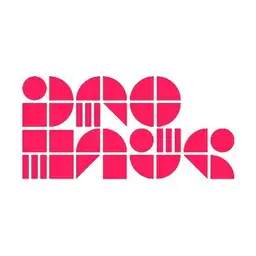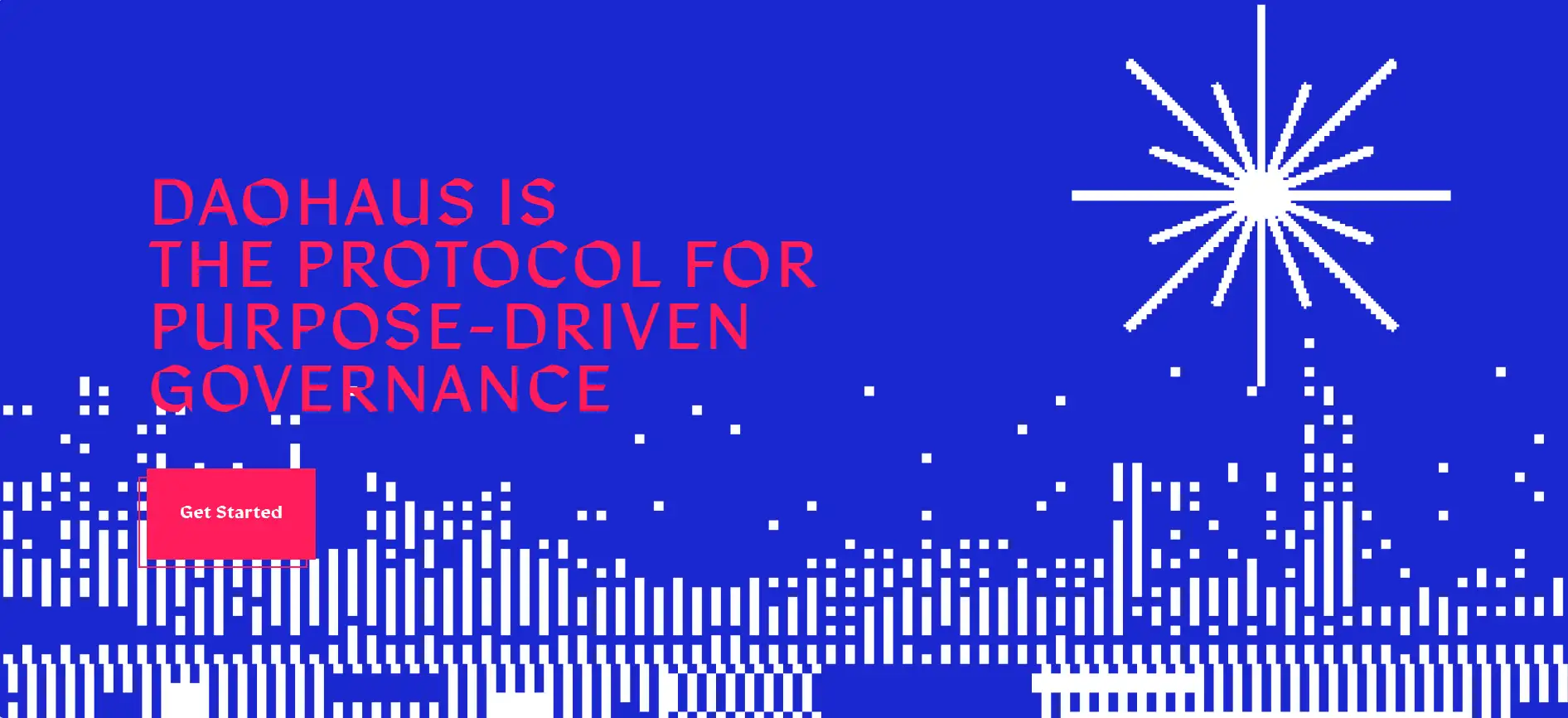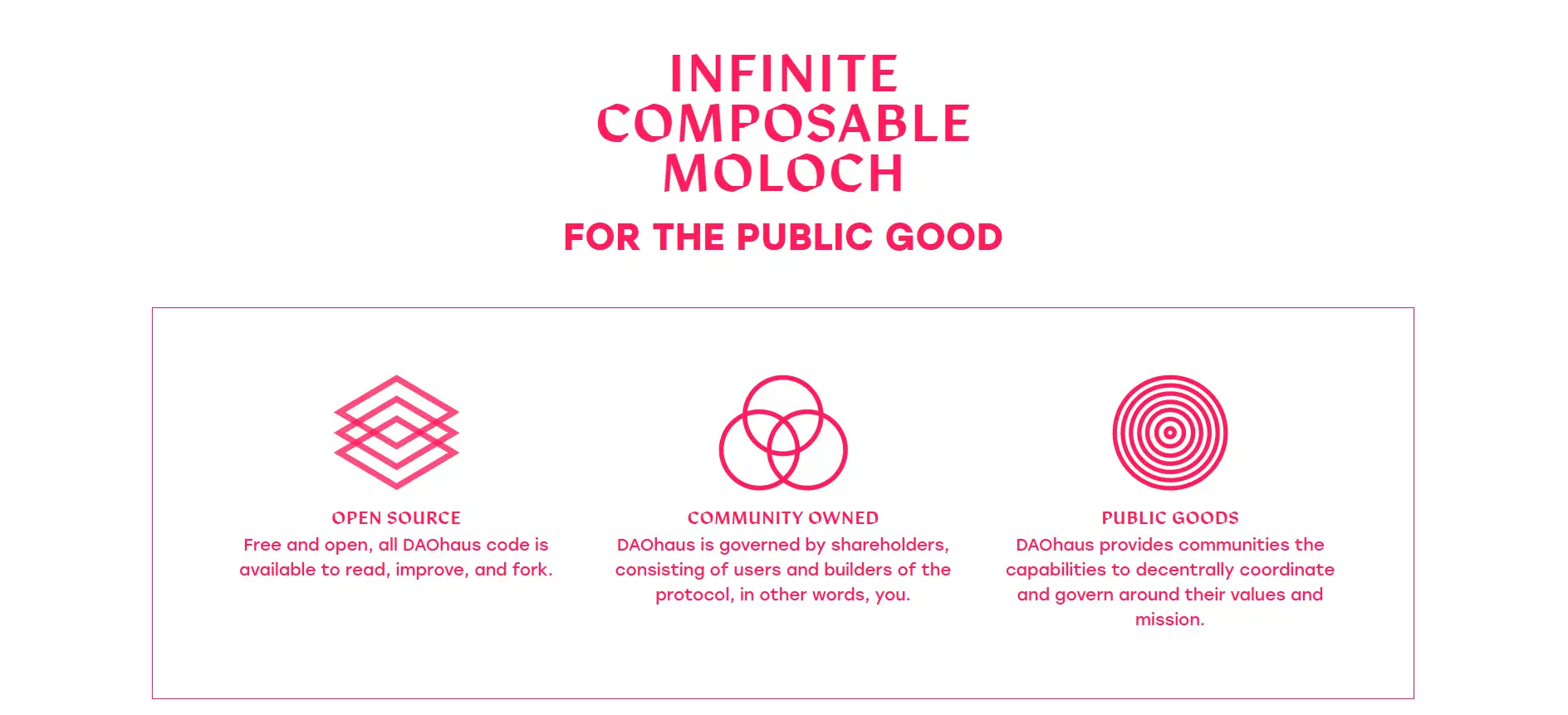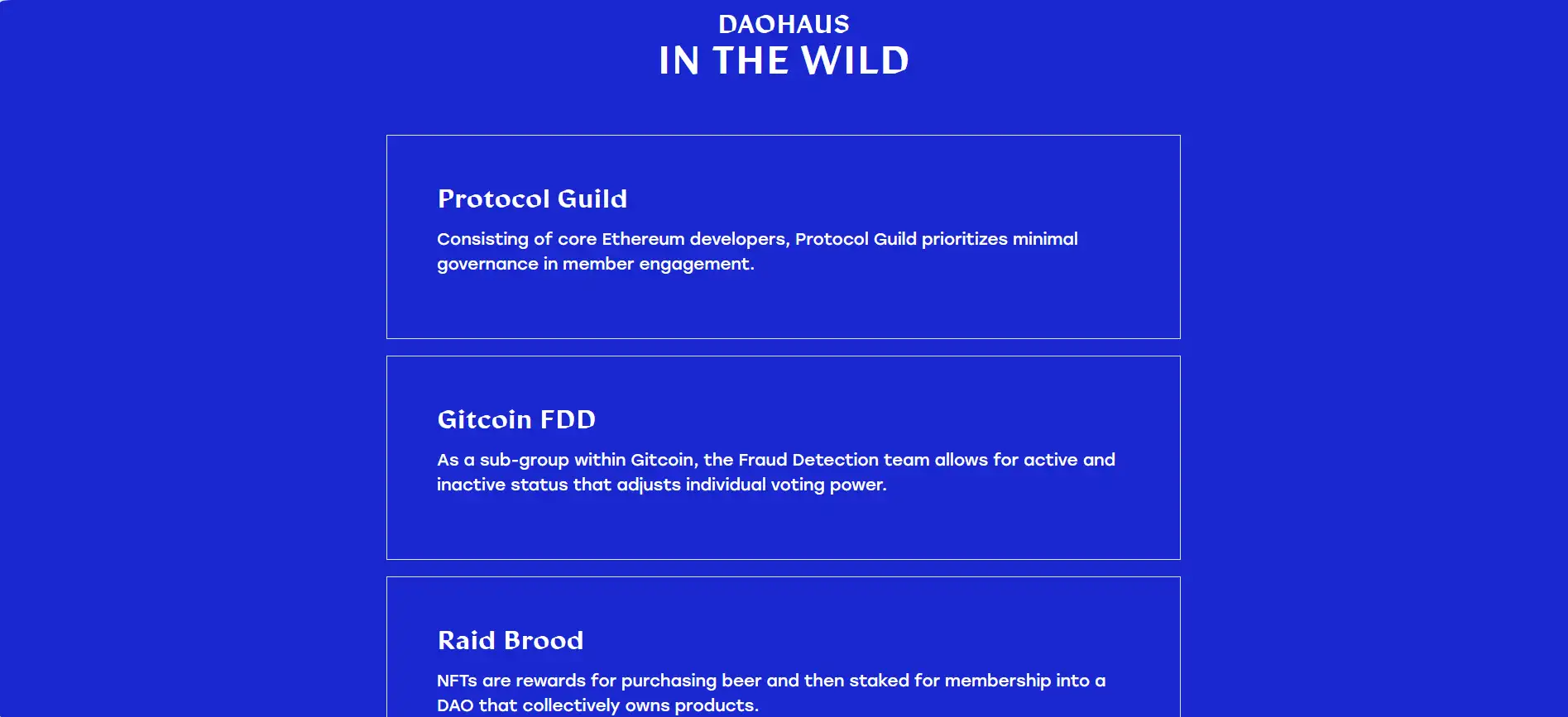About DAOhaus
DAOhaus is an open-source protocol designed for purpose-driven governance and community-owned coordination. Leveraging the Moloch v3 framework, DAOhaus allows users to launch and manage DAOs that reflect their missions, with flexibility to define custom rules, governance mechanisms, and membership systems.
By putting governance power in the hands of its users, DAOhaus supports a collaborative ecosystem where builders, contributors, and token holders collectively shape decision-making. With accessible tooling like Summoner and Admin apps, DAOhaus offers a practical way for communities to coordinate efficiently on-chain while staying true to their values.
DAOhaus is a robust, open-source platform built to support the creation and management of decentralized autonomous organizations (DAOs) rooted in the values of transparency, community ownership, and composability. Designed on top of the Moloch v3 framework, DAOhaus allows anyone to deploy a DAO with customizable governance, tokenomics, and voting logic—all through an intuitive interface.
One of DAOhaus’ flagship features is its Summoner App, which enables users to create their own DAO with a step-by-step flow, setting parameters such as token names, proposal rules, quorum percentages, and member structure. Once launched, DAOs can be governed using the Admin App, which supports proposal submission, voting, execution, and member management. The experience is modular and extensible, reflecting the ethos of composability in Web3 tooling.
Beyond technology, DAOhaus emphasizes public goods and supports ecosystems like Gitcoin FDD and Protocol Guild. Community-built tools such as Yeeter (for crowdfunding) and Moloch RDF (for NFT-based DAOs) showcase the flexibility of its SDK. DAOhaus fosters a collaborative ecosystem where builders can fork the code, contribute new governance modules, or receive community support. Education and consulting services are also available through its support network.
Notable projects using DAOhaus include Gitcoin FDD, Raid Brood, and Protocol Guild. Similar platforms in the space include Aragon, and Colony. While these offer different levels of technical complexity or governance styles, DAOhaus stands out for its simplicity, composability, and unwavering commitment to public goods.
DAOhaus provides numerous benefits and features that make it a standout protocol in the decentralized governance space:
- Open Source & Permissionless: All code from DAOhaus is freely available, allowing anyone to read, fork, or build upon the protocol via the DAOhaus SDK.
- Summoner App: Deploying a DAO takes only minutes with the intuitive Summoner interface, which allows users to configure governance rules, voting periods, and membership structure.
- Admin App: Easily manage proposals, voting, execution, and more using a clean dashboard that supports full DAO functionality for all members.
- Community-Owned & Governed: DAOhaus itself is governed by its contributors and users through the PublicHaus DAO, reinforcing its ethos of public ownership and decentralized decision-making.
- Composable Architecture: Developers can use modular components to build and extend their DAOs, using only the governance logic they need and leaving out what they don't.
- Support for Public Goods: The platform empowers DAOs that prioritize collective missions, including ecosystem projects like Gitcoin FDD and Protocol Guild.
- Cross-DAO Compatibility: DAOhaus integrates with other tools and platforms in the broader Ethereum and Web3 ecosystems, allowing your organization to stay agile and interoperable.
DAOhaus makes it easy to launch and manage your own Moloch v3 DAO with a user-friendly process:
- Visit the DAOhaus Website: Start by heading to daohaus.club and selecting “Summon a DAO” to open the Summoner App.
- Connect Your Wallet: Use a Web3 wallet like MetaMask or WalletConnect to authenticate and connect to your desired blockchain network.
- Name Your DAO: Choose a name and define the token details for both voting and non-voting tokens. Symbols are fixed after deployment.
- Configure Governance Settings: Set proposal timing, quorum percentages, sponsor thresholds, and fee structures. All of these can be updated later via proposal.
- Add Members: Define the initial member list and assign token allocations for governance rights.
- Review & Summon: Double-check your configuration, then confirm the transaction to launch your DAO on-chain.
- Operate Using Admin App: Navigate to the Admin App via DAOhaus to manage proposals, voting, and member roles as your DAO grows.
- Explore Advanced Features: Add Shamans for external permissions or use additional apps like Yeeter or Moloch RDF to extend your DAO’s capabilities.
DAOhaus FAQ
Shamans are special contracts in the Moloch v3 architecture that allow for advanced permissions and automated behaviors. Unlike traditional DAO roles, Shamans can manage specific functions outside the proposal system, such as minting tokens, handling off-chain integrations, or executing governance automation. This design lets you extend your DAOhaus DAO without compromising its on-chain security model.
DAOhaus supports NFT integrations via apps like Moloch RDF, enabling you to turn entire NFT collections into DAO memberships. This allows communities to use digital collectibles as access rights or voting weight, bridging the gap between cultural assets and decentralized governance on DAOhaus.
Yes, DAOhaus v3 is built with migration flexibility in mind. You can configure your new Moloch DAO using the Summoner App, then gradually move governance, tokens, or assets over via community proposals. The modular design helps you avoid lock-in and migrate at your own pace.
DAOhaus itself is governed by its users through PublicHaus DAO. This means contributors, developers, and members all hold shares and vote on key upgrades or treasury decisions. All major developments on the DAOhaus platform go through decentralized, transparent proposal processes.
Absolutely. Builders can develop tools and apps using the DAOhaus SDK and make them available to the community. Whether through integrations with existing DAOs or by launching new services, developers can leverage DAOhaus's composable architecture to create value—and earn it. Explore opportunities on daohaus.club.
You Might Also Like












